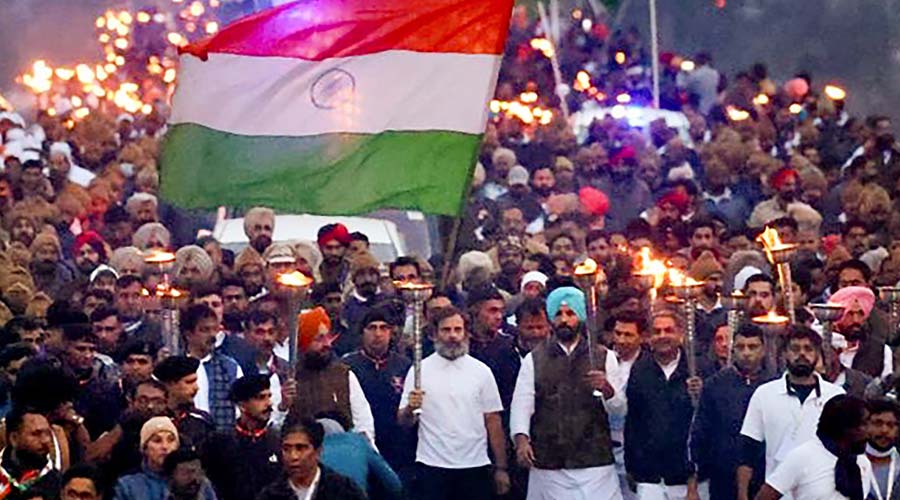History will look kindly at the Bharat Jodo Yatra, which concluded recently. The yatra and yatris — Rahul Gandhi led it from the front — reminded the nation of a number of important things. India was made to remember its fundamental strengths of peace and brotherhood at a time when the nation has been plagued by division and anger engineered by the ruling regime. Economic penury and inequality, two other formidable challenges confronting the country, were also brought to the forefront of the national consciousness. The long march also reminded the Opposition of the need to fight the political battle unitedly. But there is one aspect — contribution — of the Bharat Jodo Yatra that has continued to elude public attention. This march has laid bare the challenges faced by the modern template of political communication. With the advent of technology and the rise of social media, political messaging has shown an alarming tendency to be disdainful of public outreach programmes. Tweets, posts on Facebook or texts on WhatsApp seem to be the preferred mode of reaching out to the people. The reason for this preference is obvious. Social media and technology-driven campaigns have the ability to amplify political messaging to unprecedented levels without compromising on the creative aspects of these initiatives.
The net result, as the Bharat Jodo Yatra exposed, has been a crisis in communication. Exaggerated — falsified — claims, be they on social reality or political achievements — have clogged the networks, so to speak. Truth, unsurprisingly, has been a victim of such curated messaging. That is not the only problem. The voices of real India — farmers, workers, dispossessed communities, women and so on — have been relegated to the margins. The Bharat Jodo Yatra has made a commendable effort to address this imbalance so as to make the nation and, hopefully, the government listen to these voices. What the yatra also underscored was the centrality of mutual, real-time, personalised conversations between leaders and people. These exchanges, rare in an authoritarian India, are of paramount importance since they can address the yawning chasms not only between the government and the citizens but also among citizens themselves. Indian democracy, ideally a continuing conversation, could heal through such banter and reflections. The political benefits of the Bharat Jodo Yatra will be tested during elections. But its contribution to the art of political dialogue with the people is irrefutable.











